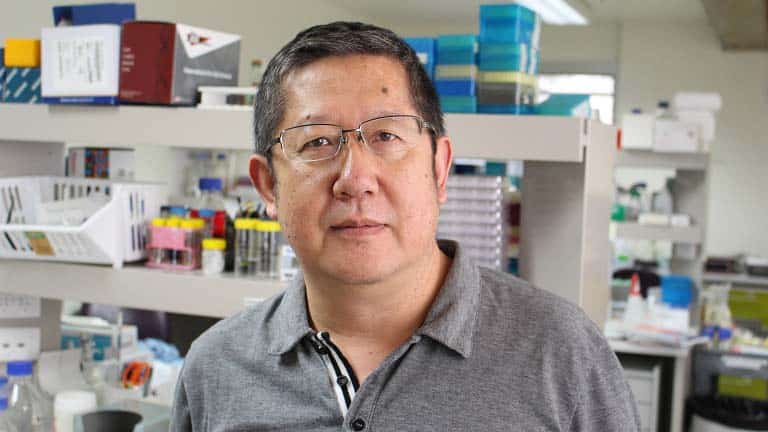
Professor Xu Dong Zhang has discovered a molecule in late-stage bowel cancer that typically resists treatment.

Professor Xu Dong Zhang has discovered a molecule in late-stage bowel cancer that typically resists treatment.
Australia has one of the highest rates of bowel cancer in the world with over 16,000 Australians expected to be diagnosed in 2020. If detected early, almost 90% can be successfully treated. However, less than half of cases are detected at an early stage.
For patients with late-stage bowel cancer, treatment is complex, as many develop resistance to treatment with certain molecules switching on or becoming more active in bowel cancer cells.
Professor Zhang has identified a molecule called ‘MILIP’ which is highly active in late-stage bowel cancer. If MILIP is removed from bowel cancer cells, the cells once again become more sensitive to treatment and the cells stop growing.
Thanks to funding from the Cancer Council NSW, Professor Zhang and his team are now working to validate their pre-clinical findings using tumour cells from patients to develop new drugs to target and prevent the activation of MILIP.
As the molecule MILIP may also play a role in other types of cancer, this treatment could potentially be extended to other cancers in the future. “We hope to identify new therapeutic approaches to improve the survival of patients with late-stage cancer,” Professor Zhang said.
HMRI would like to acknowledge the Traditional Custodians of the land on which we work and live, the Awabakal and Worimi peoples, and pay our respects to Elders past and present. We recognise and respect their cultural heritage and beliefs and their continued connection to their land.

Hunter Medical Research Institute
We’re taking healthy further.
Locked Bag 1000
New Lambton
NSW, Australia, 2305



This site is protected by reCAPTCHA and the Google Privacy Policy and Terms of Service apply.
Copyright © 2024 Hunter Medical Research Institute | ABN: 27 081 436 919
Site by Marlin Communications
